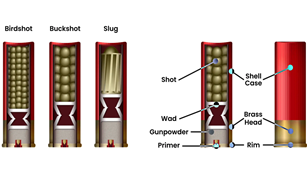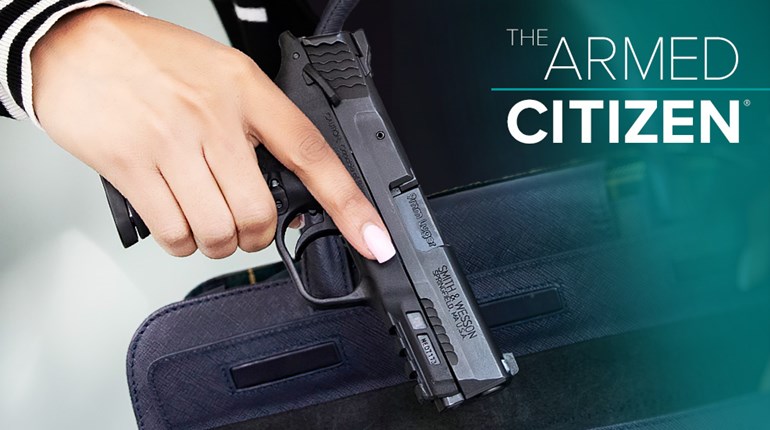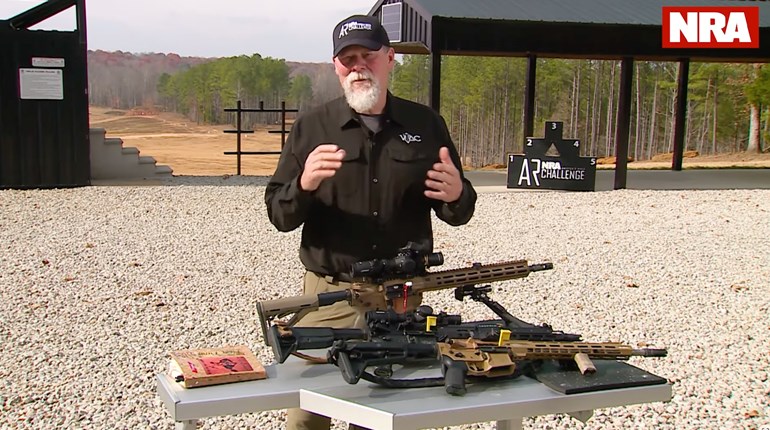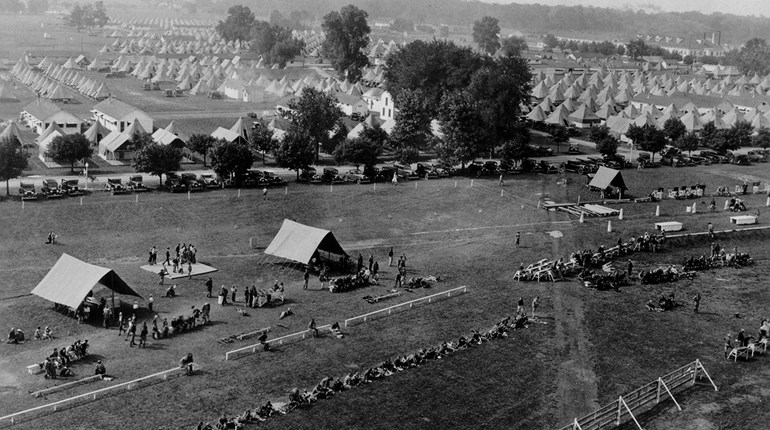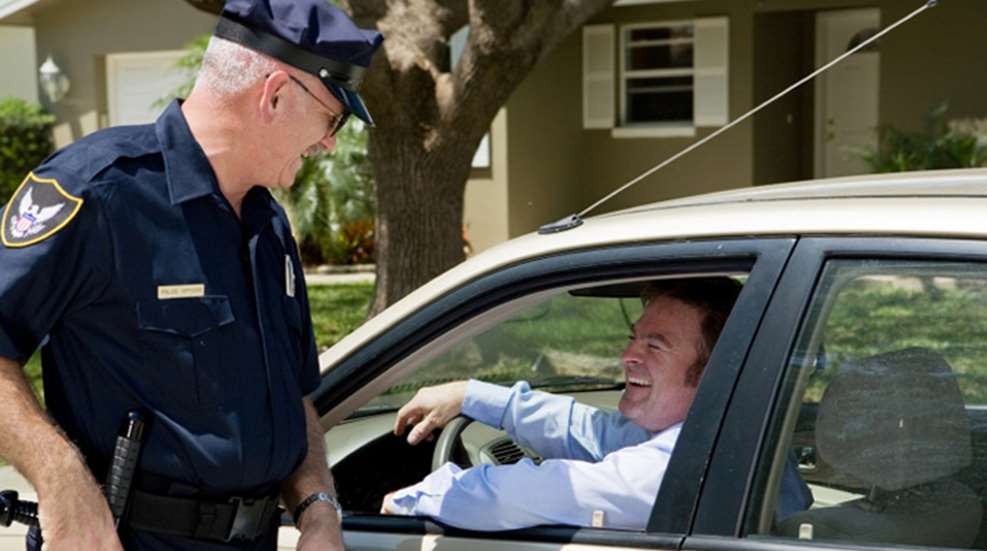
Those who carry defensive firearms often fail to have a plan for dealing with police officers while they are carrying. And this oversight can often cause an otherwise righteous situation to go bad. You must realize that police officers don't do magic and they don't have a crystal ball to consult. In short, they often can't tell the good guys from the bad guys without doing some investigating. Having a plan to deal with routine contacts with the police can often calm a situation and may have a direct effect on whether or not you get to kiss gravel, wear handcuffs and go to jail. Being stopped for a traffic violation is a good place to begin considering a police-relations plan.
When the lights come on behind you, it is an excellent idea to immediately turn on the appropriate signal indicator. This lets the officer know that you see him and are going to stop. It may, in fact, be just a few moments before you can find a place to safely pull over. Turning on your signal indicator and slowing down, however, lets the officer know that you are in the process of doing just that.
Once you are safely stopped on the side of the road, turn off your ignition as this will be further evidence to the officer that you intend to cooperate. If it is nighttime, it is an extremely good idea to turn on the interior lights of your vehicle. This allows the policeman to better observe the interior of your vehicle and get a good look at you and your passengers as he makes his approach. It is also an indication that you have nothing to hide.
As the officer approaches your vehicle, it is not a good idea to be fumbling around in the glove box, or console, looking for your insurance or registration. To an officer, these movements might make it appear that you are hiding something or arming yourself.
The best move is to open both front windows on your vehicle and then put both hands on the top of your steering wheel where they will be in plain sight. When the officer asks you for ID, registration or whatever, tell him where those things are before you start fumbling for them. All of these suggestions will give the officer the indication that you are an honest citizen who intends to cooperate with them and that you have nothing to hide.
As soon as you hand the officer your driver's license and concealed-carry permit, your hands should go right back on top of the steering wheel. At that point, he is probably going to ask you if you are actually carrying and where your firearm is located. For goodness sakes, don't reach or point towards your gun. Just keep your hands on the steering wheel and tell him the location.
Most states give the police officer a good deal of discretion as to what to do with your firearm during the traffic stop. He may allow you to simply leave the gun where it is and keep your hands in plain sight. He may ask you to hand him the gun. Or he may get you out of the car and take the gun off of you himself. If this is simply a traffic stop, and if you are not wanted, and your firearm has not been reported stolen, the officer should return the gun to you when the contact is completed. The main thing is to understand that the officer, for his own safety, has a good deal of discretion in how to handle this sort of situation.
Probably the absolute worst thing that you can do at this point is to start arguing with the officer. Has anyone ever heard a policeman say, "Gee, I didn't mean to make you mad. Why don't I just tear up this ticket and let's forget about it"? If you feel that your rights are being violated in a significant way, it is best to just ride it out and then take the matter to your attorney.
Some states no longer require a legally armed citizen to give the police officer their license, nor to advise him that they are armed. Following this line of reasoning could possibly be a mistake for the simple reason that it is never a good idea to surprise or alarm an armed officer. Should the wind suddenly blow your covering garment open and expose your defensive handgun, you might get a closer look at the policeman's handgun than you really wanted. Personally, I would rather show the officer the courtesy of telling him that I am armed and then complying with his orders regarding that fact. It is yet another indication that I have nothing to hide during this contact.
During traffic stops, or similar contacts with the police, the thinking citizen really has a good deal of control over the outcome of that contact. Good manners and a willingness to cooperate will go a long way towards mitigating the seriousness of the situation. I wish that I could tell you that it will keep you from getting a ticket, but I can't do that. More importantly, what it will usually do is to keep you from wearing handcuffs and having a close, not-so-pleasant contact with the back seat of a squad car.
It has been said that an armed society is a polite society. And nowhere is that more important than when dealing with law enforcement.
Editor's Note: To check on the laws relating to concealed carry in your state, visit NRA-ILA's "State Laws At A Glance" here.





